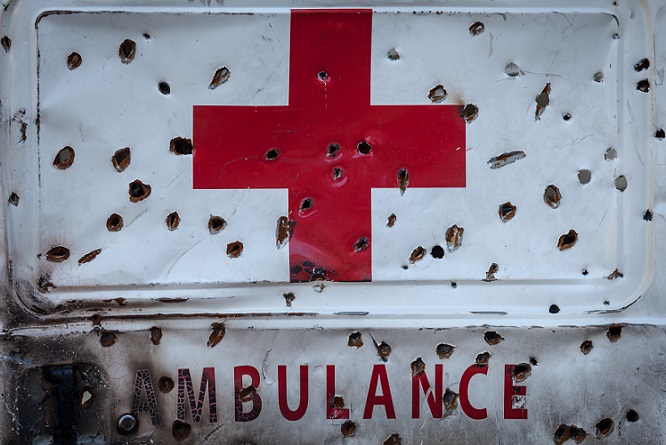The Resolution 5 of the 31st International Conference of the International Red Cross and Red Crescent Movement, which was held in Geneva, Switzerland from 28 November to 1 December 2011 emphasizes on “Health care in danger: Respecting and protecting health care”.
The International Conference is a unique forum bringing together the world’s largest humanitarian network and nearly every government. It is a major event on the humanitarian calendar and the premier global forum to enhance and inspire humanitarian debates among governments, policy makers and the components of the International Red Cross and Red Crescent Movement.
Through the Conference, states, as parties to the Geneva Conventions and partners in humanitarian action, undertake joint commitments with the Movement to advance humanitarian action. Previous decisions have contributed substantively to the strengthening of international humanitarian law and its implementation, the strengthening of legal frameworks for disasters, and to ensuring enabling environments for volunteering. The Conference also serves an important function in nurturing the auxiliary role of Red Cross and Red Crescent National Societies to their public authorities in the humanitarian field.

A bomb-damaged ambulance on display, promoting the Health Care in Danger project
A global initiative
The Health Care in Danger project is an initiative of the International Red Cross and Red Crescent Movement aimed at addressing the issue of violence against patients, health-care workers, facilities and vehicles, and ensuring safe access to and delivery of health care in armed conflict and other emergencies.
We work in three distinct but interconnected areas:
1- A public awareness campaign
Highlighting the impact in humanitarian terms of violence against health-care workers, the Life & Death campaign seeks to broaden public understanding of and support for international and national initiatives for their protection.
2- The mobilization of a broad Community of Concern
The Community of Concern is a catalyst for change, supporting, at the local level, the implementation of recommendations and measures to protect health care. It is made up of health professionals, governments, weapon bearers, civil society representatives, NGOs, international organizations and more. Together with this community and through research, debate, consultations and workshops worldwide, the HCID project has produced a number of recommendations and practical steps to safeguard health-care services.
3- Consolidating and improving field practices and national responses to violence
The HCID project supports the implementation of concrete, practical measures and operational responses at national and local levels to prevent violence and safeguard health care in armed conflict and other emergencies. Our goal is to ensure that governments strengthen domestic law on this issue and that these measures become standard practice for all concerned.

